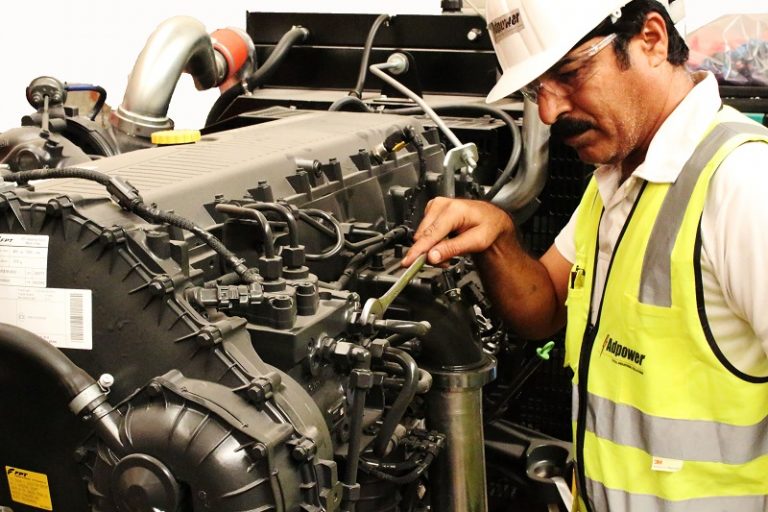Diesel generators incorporate a diesel engine and an alternator or electric generator to produce electric energy. This generator runs on fuel, but some types can run on natural gas or other liquid fuels. Most people love diesel generators due to their robust design, reliability, and durability. With that said, you still need to ensure that your diesel generator is maintained correctly to ensure it remains in pristine condition and serves you for a prolonged duration.
But, what are some of the preventative maintenance measures you should put in place for your diesel generator? Here’s a detailed guide to answer that question:
1. Carry Out Routine Inspections
Accidents can happen anytime while running a diesel generator, like Kubota generators. The best way to prevent this unfortunate situation when running a generator is by doing routine maintenance regularly. Doing so is essential because the generator usually vibrates a lot when running, which leads to certain parts or bolts falling off in the process. As a result, this might lead to an accident or the generator malfunctioning. With this in mind, you need to examine the different components, including fuel, exhaust, alternator, and DC electrical systems, to ensure everything is working smoothly.
2. Regularly Check The Fuel In Your Generator
The standard shelf life of generator oil is around five years. However, you shouldn’t take the risk and leave this oil in your generator fuel tank because it might clog its engine once it becomes stale. The best way to prevent running your generator with stale and dirty gas is by routinely checking the oil, and this will avert startup issues.
You also need to ensure your generator isn’t running on an empty tank because this might damage it. The best way to avoid this is by storing gas properly on your property and not needing to rush when the gas runs out.
3. Ensure Your Generator Is Clean
The two parts inside your generator that work together to produce electricity are the stator and rotor. But, running your generator over time leads to these parts starting to collect debris, dust, grime, or other contaminants. When this happens, your generator starts to lose power and becomes less efficient. In addition, the rotor and stator are more likely to get destroyed a lot faster.
You should be especially keen about these routine repairs if your area is very dusty. Doing this ensures you’ll never be caught off-guard because your diesel generator isn’t working.
4. Routinely Change The Oil
Your generator needs to be well-lubricated at all times. This is crucial because oil plays a vital role in cleaning, cooling, and lubricating the moving parts. In addition, it prevents the generator parts that are in contact with the surface from rusting. With engine oil having such an integral role, you should always check it often and confirm it’s always near the full scale.
The recommended period after which you should replace your generator’s engine oil and filters is after 500 hours of operation. However, this isn’t cast on stone as there are some instances when changing the oil needs to be done after a shorter or longer period. When replacing or adding oil, make sure the subsequent oil is from the same brand and of identical quality.
5. Run Your Diesel Generator After A Couple Of Months
Generators are mostly used as a backup in the event of a power outage. Therefore, this machine might, in some cases, go for months or years without needing to be used. However, this doesn’t mean that you shouldn’t run your generator altogether to ensure the electric starter battery is always charged and fresh. You should also do this to avoid being caught by surprise when trying to run your generator and finding out that it isn’t working.
6. Clean Or Replace A Dirty Air Filter
After being used for an extended duration, air filters start to wear down, and this might result in more serious damage to your generator. When this happens, it’s best to clean the air filters or replace them.
If you opt to clean the air filters, be extremely careful when doing this to avoid destroying it. You should do this by washing the air filters with soapy water and consequently drying them gently either by giving it 24-hours to air dry or using a clean cloth. After that, insert the filter back into your diesel generator. But, while cleaning air filters is equally effective, it’s best to replace them altogether to prevent any issue later in the future. This shouldn’t be financially strenuous as they’re fairly cheap.
Takeaway
While diesel generators are, in most cases, the go-to option because they’re less expensive to run than other generators fueled by natural gas or liquid fuels, they need proper maintenance. To get the most value from these generators, you need to ensure they’re at all times adequately maintained unless you want to sit around in a bathroom heat light. Ensuring this is observed shouldn’t be a problem ever again after reading through the insights mentioned above on how best to maintain diesel generators.

